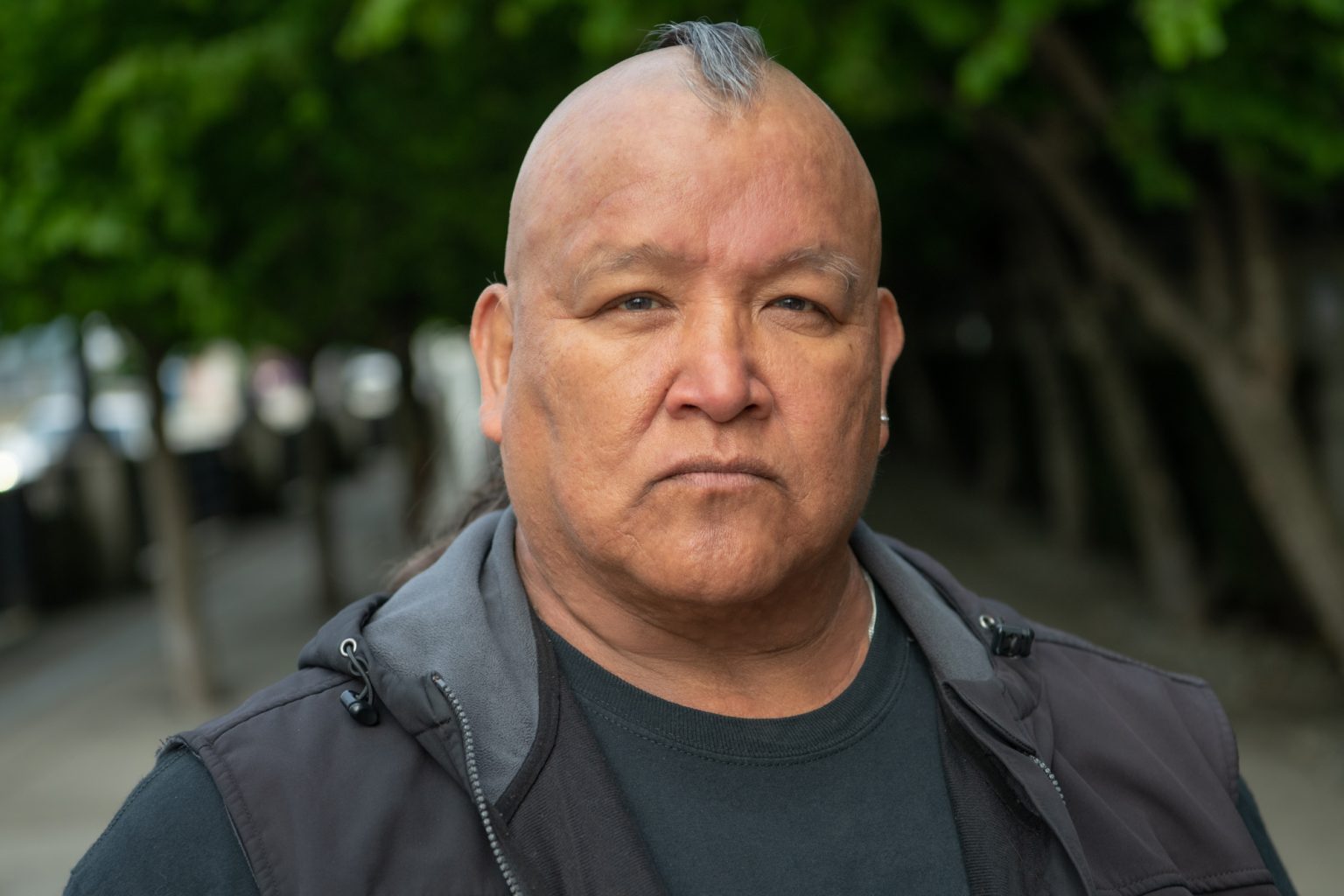I’ve seen racism my whole life. Right from when I started out, those are my earliest memories, the treatment to our people. I remember being in the car going on the ferry and we weren’t allowed off the car deck to go up to where everybody else was on the ferry. Or at our Odeon theater downtown, they were putting us up on the upper deck where it was all First Nations sitting. Only the non-First Nations were allowed on the main seating area. We had separate entrances into buildings downtown. When I was older and I worked at the golf course, I was only allowed to come through the service entrance. I want to push back on that kind of mentality because it’s wrong. It’s really wrong.
I often thought, ‘What if people knew a little bit about us? What if that’s all it would take for them to have a better understanding and acceptance of us?’ That’s why BCIB’s Respectful Onsite Initiative—ROI—training is important. I’ve seen the effect that sharing knowledge has. At the ROI training I attended, there were 12 workers whose demeanor at the start was like, ‘I’d rather be anywhere else but here right now.’
We ended up going to a lunch break. We started talking about residential school experiences. I have firsthand experience with that, so over that lunch, I shared my story.
I attended Day school. My brothers and parents attended Residential school. My father was taken from home because my granddad had passed. His mom only spoke SENĆOTEN, [a language of the Saanich Nation], so he grew up with nothing else. No English. He was taken away by the police. They took him to the 215, what we know today, 215 Kamloops Indian Residential school.* Mom went to Kuper Island Residential School on Penelakut Island. We grew up knowing that history, and then my older brothers went to Residential School, too.
I was sent to Day School, which was pretty much the same thing except I got to go home at night. I had friends there that were being abused by the priest. Three of them committed suicide. They were screened out by the priest when he was calling for us to go to confession. The boys were confiding in the priests who they thought they could trust. He made them into altar boys. That opened up the opportunities for him to be alone with these boys. He was a predator abusing the young. Now, once it happened to a non-First Nations boy, and the boy committed suicide, the awareness about what was happening got out there. The awareness was out there that the priest was doing that in our community. What the church did was move him up to another community, where he proceeded to do the same thing. He was eventually charged with more than 20 counts.
Over that lunch with the other workers, I shared my truth with the other workers and, towards the end, some of them were tearing up. It goes from something that’s historical to the here-and-now, where you have somebody sitting in front of you sharing stories. There are people that need that.
I’ve seen the effect that sharing knowledge has on people who, at first, are like, “I’d rather be anywhere else but here right now.” They move to, “Oh man, this is so powerful,” where they are hanging on every word. I see a whole lot of an attitudes change in a matter of a couple of hours.
When it came to the end of the day when I had to leave, I started to really thank all of those that were involved. Without a doubt, ROI training is beneficial to workplace culture. Prior to that session, I’m sure some of those boys have seen some of our people potentially begging on the street corner. Now, they might see that the truths I shared could be the reason why it’s sometimes like that. For me, I’ve been working for so many years and to see something like this training. Wow, it’s amazing. I was really touched by what was brought up there and just the depths of it.
*In 2021, ground-penetrating radar discovered 215 possible unmarked graves at the site of the school.
Bubba is a respected Quw’utsun traditional speaker and certified Red Seal plumber. He is also BCIB’s Indigenous Coach and Cultural Advisor on the Cowichan District Hospital Replacement Project. In his new role, Bubba provides direct support to Indigenous employees, such as transition-to-work supports. On the jobsite, Bubba is making worker experience more culturally relevant and respectful for Indigenous employees by actively sharing cultural teachings, experiences, and wisdom. Cultural Advisors are commonplace in post-secondary institutions but are seldom found in the construction industry.

